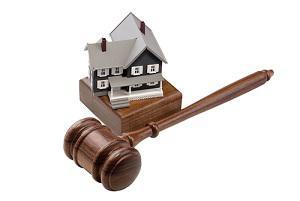The Status of the Marital Home in Divorce
 When most people get married, they do so with the intention of sharing a life together. This usually means joint ownership of all assets and property, as well as shared responsibilities for incurred debts. During a divorce, as most people understand, the property that constitutes the marital estate must be divided equitably between the spouses. In some cases, though, determining whether a particular asset is part of the marital estate can be a little more challenging than in others. High-value assets like your marital home can be especially confusing if it was titled in the name of only one spouse. Is such a home considered marital property?
When most people get married, they do so with the intention of sharing a life together. This usually means joint ownership of all assets and property, as well as shared responsibilities for incurred debts. During a divorce, as most people understand, the property that constitutes the marital estate must be divided equitably between the spouses. In some cases, though, determining whether a particular asset is part of the marital estate can be a little more challenging than in others. High-value assets like your marital home can be especially confusing if it was titled in the name of only one spouse. Is such a home considered marital property?
The Name on the Title
Determining if your home is marital property depends on several, fairly straightforward factors. Surprisingly to some, the name on the title means almost nothing in most cases. You and your spouse could have agreed to put just one name on the mortgage or title to obtain financial advantages. Such practices are fine and understandable, but have little bearing on the home’s status as marital or non-marital property.
You must instead consider when the home was acquired and paid for, and whether you continually invested in improvements to the home while you were married. If you alone had purchased the house and paid it off completely before you got married, you could argue that the home is yours and not a marital asset. However, if you and your spouse purchased the home after your marriage and made every mortgage payment with regular work income, the home is part of the marital estate, regardless of the name on the title.
Complicating Factors
Of course, not every case is so black and white. Other situations could present more unique challenges. For example, if you signed a contract to buy a home using a 30-year mortgage and get married five years into the agreement, the chances are good that you will be making 25 years’ worth of mortgage payments with marital property. During a subsequent divorce, therefore, your spouse would likely be entitled to a portion of the home’s value. While you still may be able to keep the home, you would probably need to compensate your spouse for his or her portion, possibly by allocating other marital property.
Property Division Professionals
If you are considering a divorce, it is important to know the law and how the process will affect your life. Contact an experienced DuPage County divorce attorney today to get the answers you need to whatever questions you may have. Call 630-409-8184 for a confidential consultation.

 630-409-8184
630-409-8184













